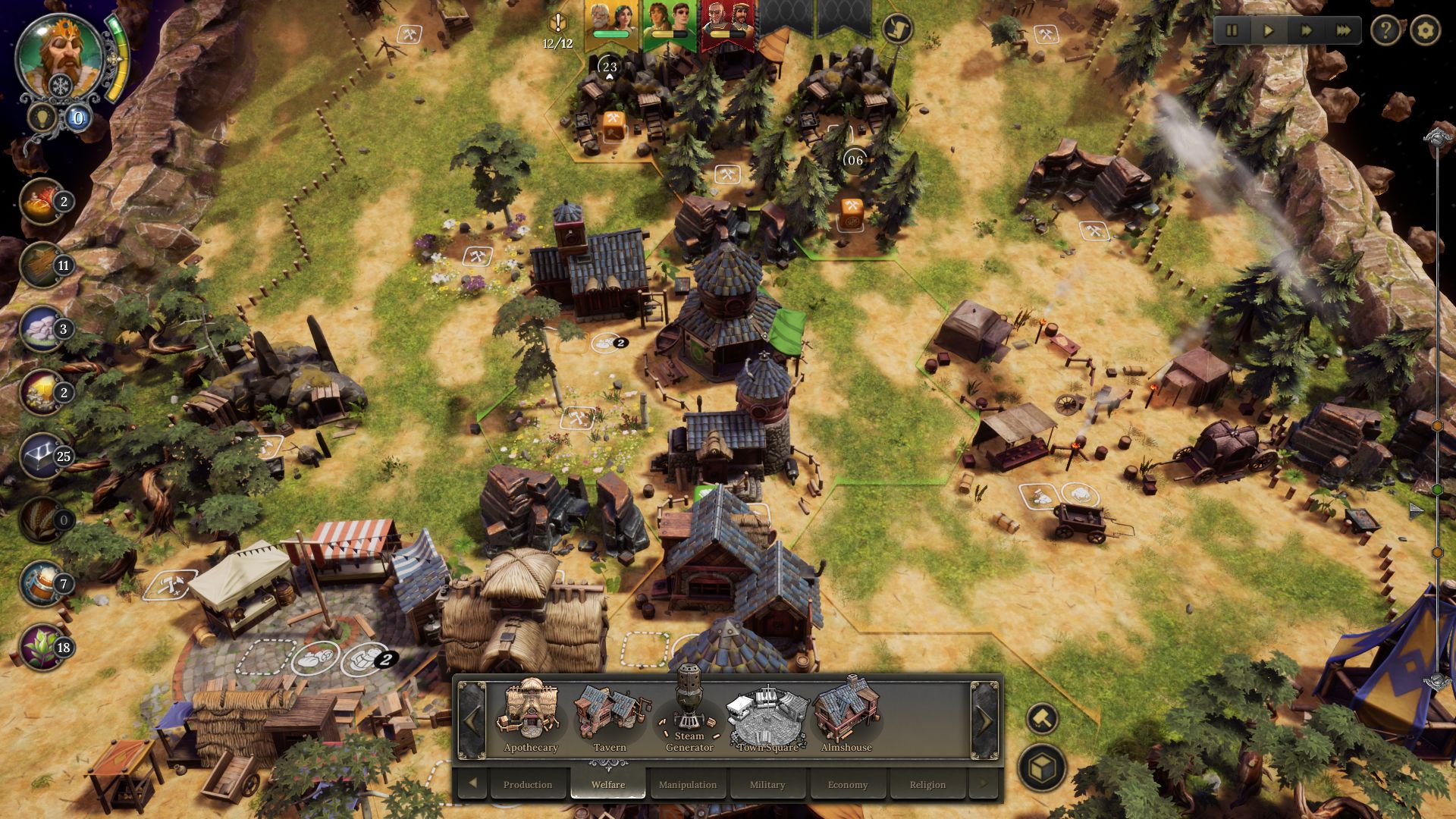Our Verdict
A smart, peculiar city builder that ends in a gruelling uphill battle against a rival city.
PC Gamer's got your back
Don't let Dice Legacy deceive you, as it did me. It's not a chill city builder with a couple of quirky presentational features and nascent roguelike elements. No, it's a pitched battle for survival, pitting your dicey tribe against a rival settlement. You're not (just) building a cute medieval town—you're building a machine to take your enemies, The Others, down.
What is it? A quirky city builder that's secretly a merciless realtime strategy game
Expect to pay: $20/£16
Developer: DESTINYbit
Publisher: Ravenscourt, Maple Whispering Limited
Reviewed on: Intel Core i7-10750H, 16GB RAM, GeForce RTX 2060
Multiplayer? No
Out: Now
Link: dicelegacygame.com
You'd be forgiven for thinking otherwise, given how sedately Dice Legacy starts. Parking your ship at the edge of a seemingly unclaimed landmass, you soon go about the usual colony stuff: building a house and assigning workers to essential tasks. Food needs to be hunted, wood gathered, and stone and iron mined by the peasant class. But here those workers are represented by chunky, colourful dice.
Exploiting the land involves matching die faces to the various icons in the environment. The Tool icon is found by forests, mines, meadows, and hunting lodges (these are already present when you arrive in the world), and extracting them is as simple as dropping a die with the same icon atop each resource. When the resulting timer runs out, the die becomes exhausted, requiring a reroll before it can be used again. But you never know which of the die's six faces the roll will settle on.
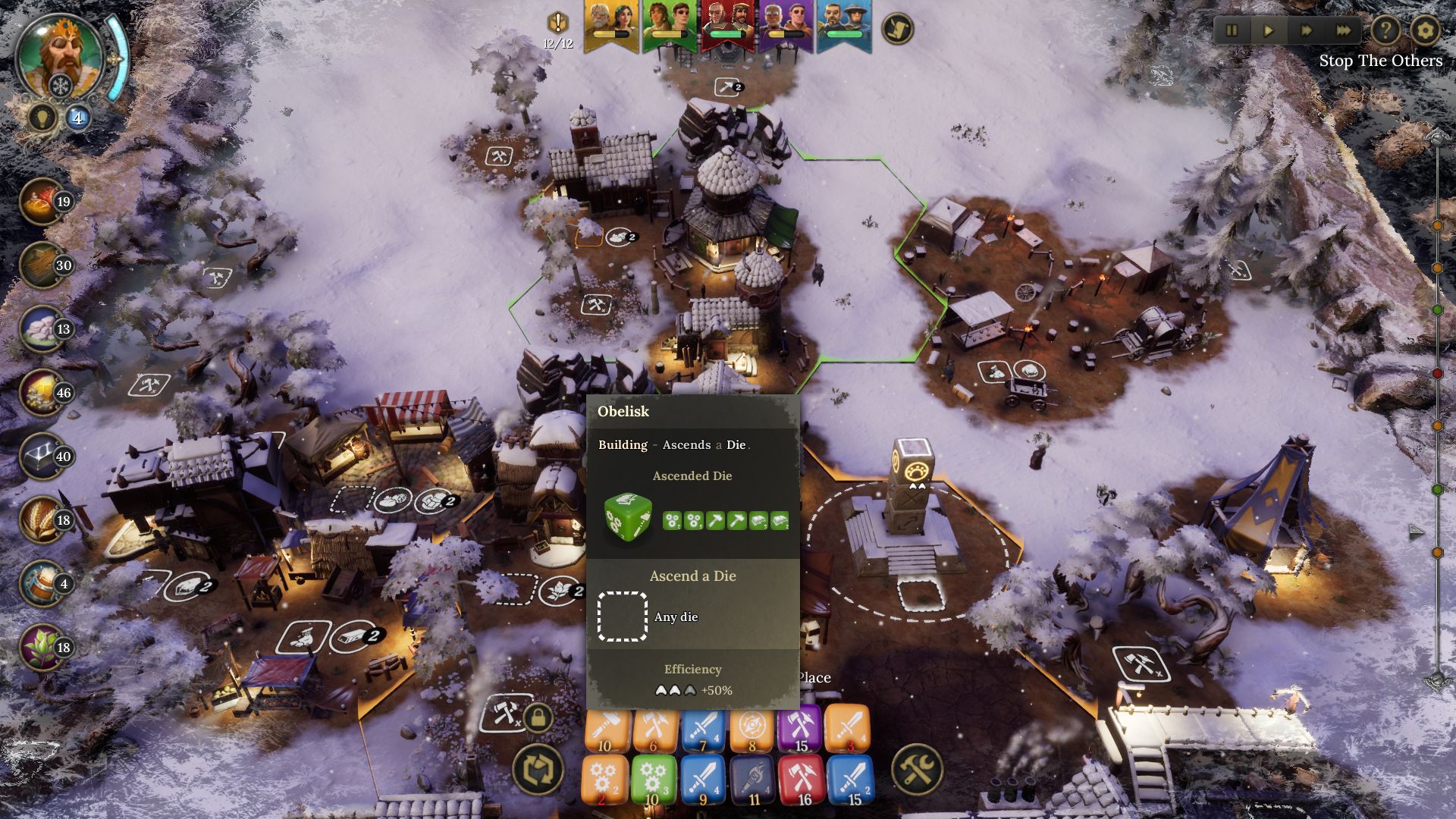
On a good roll, in the early game, you might end up with multiple Tool faces, letting you gather wood, food, herbs and stone all at once. Next roll, however, you might get five Compass faces, which serve a much more narrow purpose. So, why not just reroll for a better result?
The tension at the heart of Dice Legacy is that its dice have durability. This is lowered every time you roll and they, er, die if it ever drops below zero. You're forever weighing the need to reroll against the need to preserve durability, which can only be restored by plopping a die in the cookhouse with a bit of food.
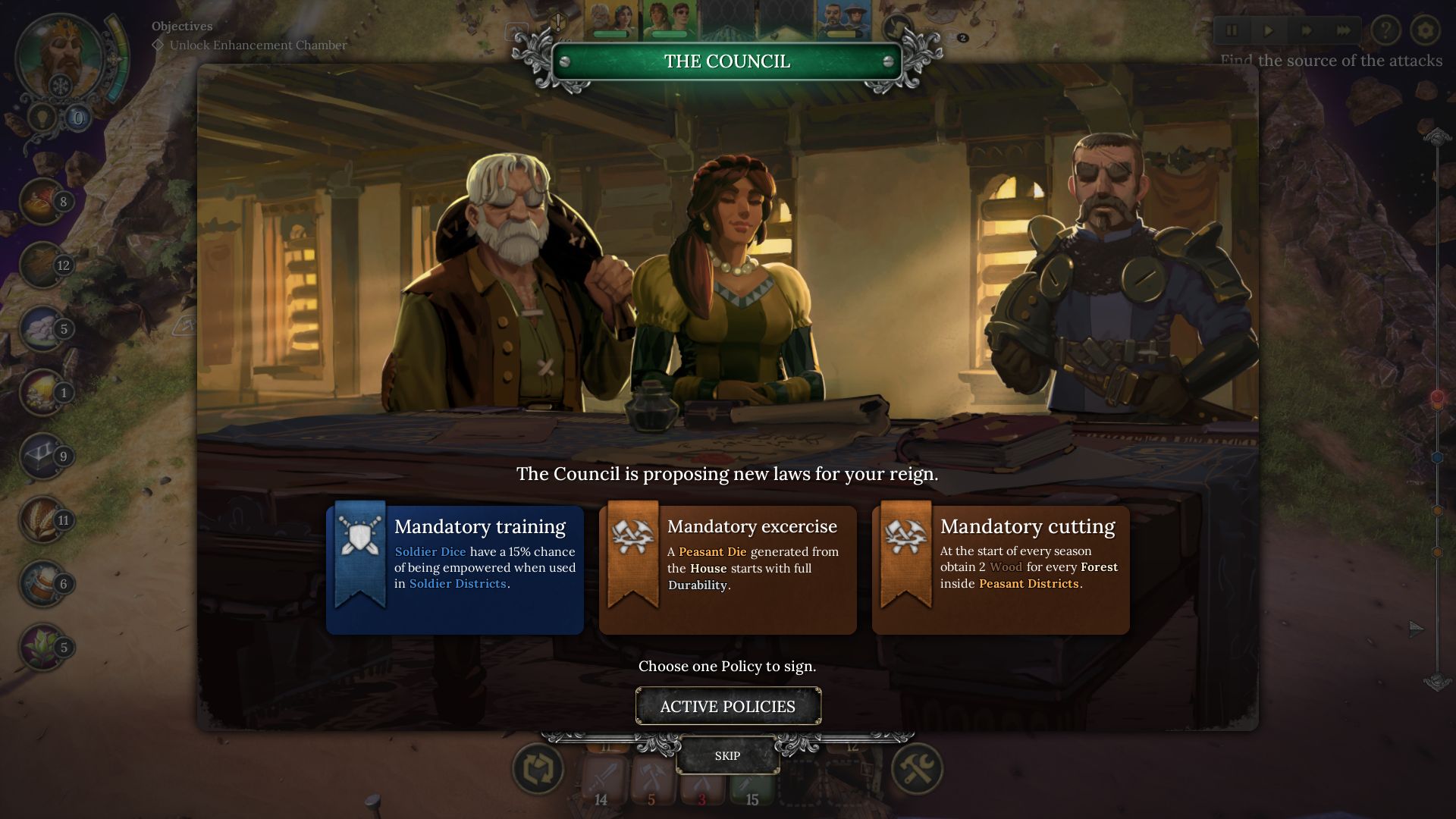
But there are other hazards too. Dice can be wounded and killed in combat. They can be stricken with an infectious plague. And, when winter rolls around, they can be frozen, rendering them useless until you heal them, or the season ends. It's rare that a die will perish outright, which is why I initially felt this was a laidback game. Even winter is not too punishing, when you know what you're doing.
When the cold hits, your wheat fields become unusable, and every die runs the risk of freezing when being used. You can stave off the cold by building steam generators, or warm frozen dice in the tavern with a mug of beer. I like that the cold never straight-up kills your dice—that would feel overly punitive—the game instead finding a creative punishment that better engages with the central rolling mechanic.
Because these dice aren't just for show. Dice Legacy has stretched the genre to fit its peculiar premise. Often, the results are a little strange. It's the unusual city builder where you only ever need one house, for example. Moreover, it's used entirely for, ah, procreation. Yes, you put two dice in the house—a more accurate name might be the love hotel—and three dice come tumbling out of the door.
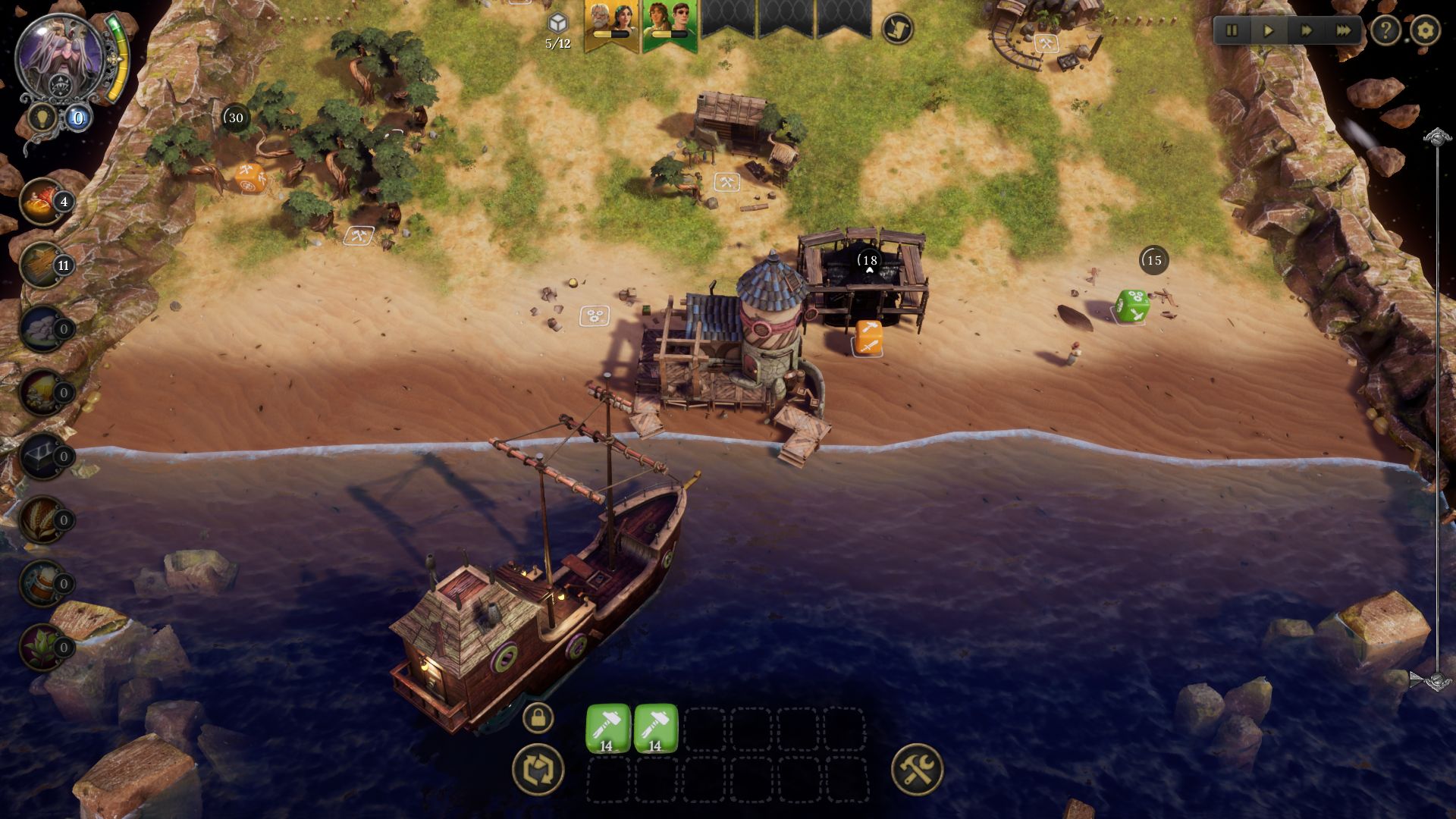
While you can never entirely eradicate the randomness of rolling, you can 'empower' die faces to make them more effective when they do appear. You can also fuse dice together into more powerful forms, although your population isn't terribly keen on being experimented on. Joining the peasant class are the citizen, soldier, merchant and monk classes, each fulfilling different roles and capable of rioting if you don't keep them happy. It's a lot to take in, but the tutorial is pretty good, and you don't have to engage with some of these dice types and buildings if you don't want to.
What you will have to do is fight the city of aggressive settlers on the other side of the ringworld, who gradually make their presence known as you build your town. The only way to stop their increasingly powerful raids on your buildings is to smash the heart of their city to smithereens.
Oh, it's easy enough to reach said city—simply a matter of expanding upwards, in what is ultimately a fairly compact map—but keeping hold of your territory is another matter. Your outposts will be destroyed, your dice lost, your resources wasted. The clever, annoying twist is that you should have been preparing for this hidden battle the entire time.
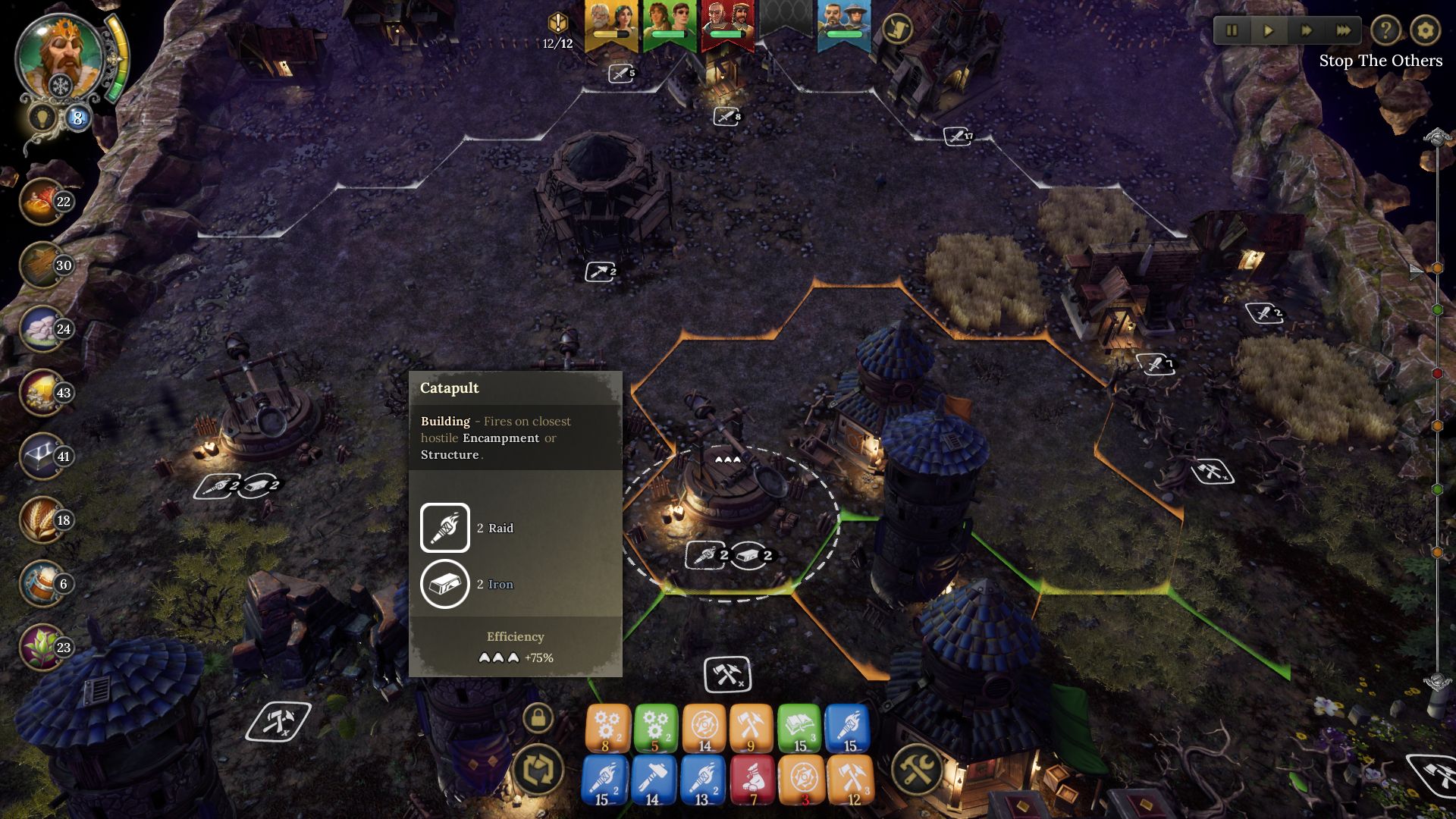
After two frustrating, Sisyphean attempts (there's no manual saving, so if you're caught in a downward spiral it might be best to restart the game), I turned the difficulty down to the easiest setting and started again. Here, The Others won't attack until you poke them first, giving you plenty of time to shore your defences and upgrade your fighters. When I finally made my attack, the enemy responded slowly with their initial, puny raiders, so it was a short and slightly shaming victory in my favour.
That's probably not the intended Dice Legacy experience, but I needed to see the end of it, partly to know what the many locked modes had to offer. There's no Others-free mode, but if you want to make the experience harder for yourself you can play in a permanent winter, in a land mired in bureaucracy, or on a map with fewer resources available to scavenge. Alternate rulers are also unlocked after beating the main game, each favouring a different dice class.
There's always been some overlap between city builders and realtime strategy games, but Dice Legacy carves an awkward niche in the middle. Yes, it's a game about building a colony, but your every effort should be directed towards overcoming its cliff-like final battle. It's an engine, and the fuel is colourful dice. I admire it for that focus, even after hunching over my keyboard playing one of the most dispiriting games of my life.
A smart, peculiar city builder that ends in a gruelling uphill battle against a rival city.
Tom loves exploring in games, whether it’s going the wrong way in a platformer or burgling an apartment in Deus Ex. His favourite game worlds—Stalker, Dark Souls, Thief—have an atmosphere you could wallop with a blackjack. He enjoys horror, adventure, puzzle games and RPGs, and played the Japanese version of Final Fantasy VIII with a translated script he printed off from the internet. Tom has been writing about free games for PC Gamer since 2012. If he were packing for a desert island, he’d take his giant Columbo boxset and a laptop stuffed with PuzzleScript games.
